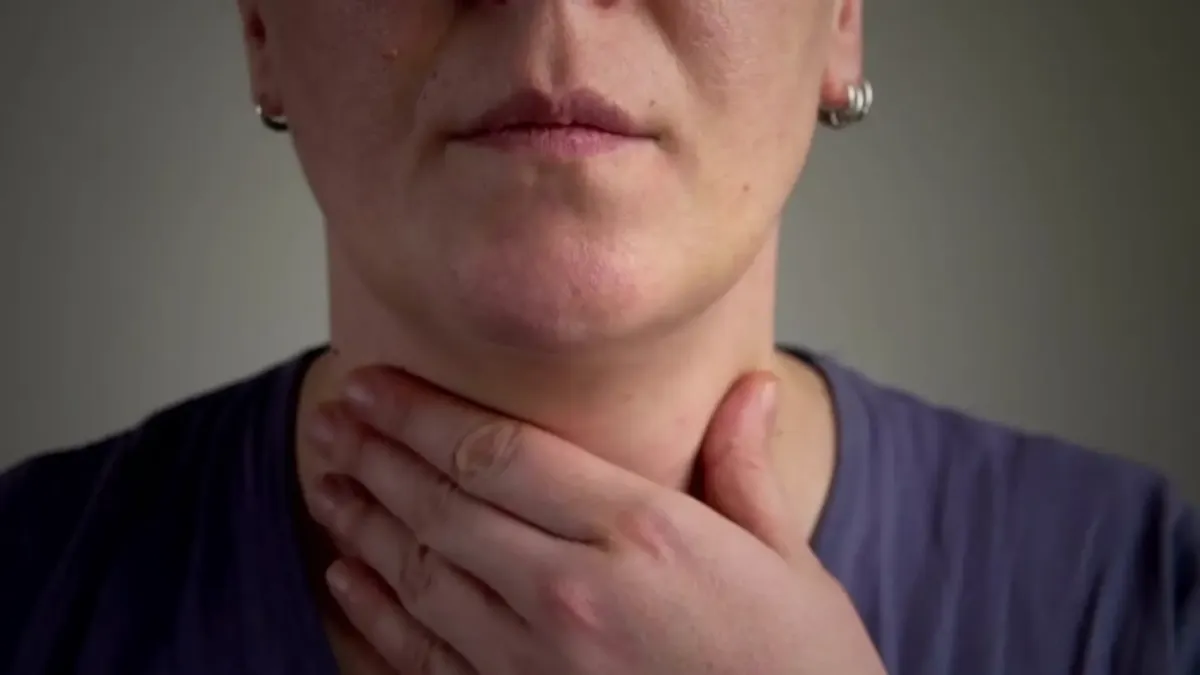MENU
BLOG

Treating Sex Hormone Imbalances
Sex hormones are that are involved in the regulation of sexual development and reproduction. The primary sex hormones are estrogen, progesterone, and testosterone. Men and women have all of these, just in different amounts and ratios...
When men and women have low energy caused by an imbalance in their sex hormones, it is usually from different hormones. For men, it is usually due to a testosterone deficiency. For women, it is usually due to estrogen and/or progesterone imbalances.

Sex Hormones & Low Energy
The symptoms of menopause are no joke. They are incredibly uncomfortable and can change the quality of your life significantly. When a woman comes to me with menopausal symptoms, she is usually pretty desperate for relief. I use both natural and pharmaceutical therapies to get her that relief.

Treating Thyroid Disease
I am a big believer in natural medicine. It can be very powerful and work very well. I prefer to use it as long as the natural treatment is safe and strong. Unfortunately, when treating low thyroid, we usually need both the natural and the prescription treatments. In college, I learned from playing the card game euchre not to “send a boy to do a man’s job.” In medicine, this means using the treatment that you know will work. If I think a natural treatment will work, but I know that a medication will work, I should use the medication as long as there are no significant side effects. This is because I want to make sure you get results right away so that you can get your life back

Treating Thyroid Disease
Thyroid disease is one of the most common health problems we face today. The majority of people with thyroid dysfunction have hypothyroidism. Hypothyroidism (“hypo” means low) is a condition where the amount of thyroid hormone in your body is less than what is needed for optimal function. According to the American Thyroid Association, more than 12 percent of the US population will develop a thyroid condition during their lifetimes, and more than half will be unaware that they have a problem. Women are five to eight times as likely as men to develop thyroid problems.

Advanced Adrenal Recommendations
Last week, I went over the recommended supplements to treat Adrenal Fatigue. This week I’ll go over adrenal recommendations as well as a plan to reduce stressors.
Treating the physical symptoms is only the first step. Once you start to feel better, it’s important to begin addressing the causes of the problem: the sources of stress that compromised your adrenals in the first place.

Testing & Supplement Options for Adrenal Fatigue
Last week we discussed the main symptoms as well as the causes of adrenal fatigue. This week, I will focus on testing and supplement options for treatment.
If you have most of the symptoms listed last week, you probably have adrenal fatigue. However, how do we test for adrenal dysfunction?

How Adrenal Fatigue Causes Chronic Fatigue
This week I will discuss how adrenal fatigue is a primary cause of chronic fatigue.
It's estimated that up to 80% of adults experience adrenal fatigue during their lifetimes, yet it remains one of the most under-diagnosed illnesses in the United States. Conventional medicine does not yet recognize adrenal fatigue as a distinct syndrome

Food Allergies & Low Energy
Food allergies can cause almost any symptom the body can manifest, including low energy. The gastrointestinal tract maintains a delicate balance of good bacteria, specialized immune cells, and various neurological and hormonal activities. In fact, 80% of your immune system resides in your gut, so anything you put in your mouth can trigger a reaction. Once your digestive system detects what it considers a “foreign particle,” your immune system reacts, and the inflammation that follows creates pain and dysfunction.

Food and Your Energy
Food is a touchy subject, especially if you’re not feeling well. We have a lot of emotional attachments to it, and it can give us joy at times when nothing else can. However, food allergies play a significant role as a cause and contributor to fatigue and, as a doctor, I have seen amazing improvements in the health of my patients when they change their food choices.

7 Causes Of Chronic Fatigue That Are Often Overlooked
Chronic fatigue—a condition defined as persistent fatigue that cannot be alleviated by rest—affects nearly 2.5 million Americans. For those folks, waning energy levels and low vitality can make every day a struggle.
As a medical doctor who specializes in fatigue, I see it manifest in a variety of ways. I also know that some interventions work for certain patients but not for others, and this can make treatments difficult. When they first visit my office, many patients have seen numerous practitioners (without any success) and many are convinced that they must simply learn to live with their fatigue.
You do not have to live with fatigue.
After working with thousands of patients, I can confidently say that you do NOT have to live with fatigue and the misery it can bring. And while fatigue can have many different causes and seem overwhelming, my treatment approach systematically identifies any potential factors driving fatigue and then eliminates them—for good.
Here's how to identify the cause of your fatigue.
Fatigue has many roots and the first step in treatment is to rule out out any obvious causes like diabetes and cardiovascular disease. Next I check for poor sleep, chronic stress, nutrient deficiencies, food intolerances and allergies, and insufficient exercise, all of which are more obvious fatigue triggers. Finally, I look for the less obvious culprits that—in the complicated web of symptoms and causes—can be easy to overlook. In my experience, I find that these seven culprits often trigger or exacerbate fatigue in many of my patients:
Adrenals
Your adrenals sit on top of your kidneys and produce the stress hormone cortisol. Chronic stress causes an initial increase in cortisol but then levels start to decline and this oftentimes manifests as burnout and fatigue.
Thyroid
Thyroid dysfunction is a major cause of fatigue, yet many conventional practitioners tell patients their thyroid function is fine because labs produce “normal” numbers. Unfortunately, those numbers don’t tell the whole story.
Sex hormones
Deficiencies or imbalances in progesterone, estrogen, and testosterone in men and women often contribute to chronic, unexplainable fatigue.
Heavy metals and chemicals
Toxins bombard air, soil, food and water and can overwhelm your detoxification systems. Lead, aluminum, formaldehyde, plastics, pesticides, drugs, mercury in fish and amalgam fillings are some of the most common fatigue-sparking toxins.
Infections
Infections from bacteria, parasites, viruses, fungi, and other microorganisms can create fatigue. Frequent culprits include the Epstein-Barr Virus, Lyme disease, yeast, mold, Multiple Antibiotic Resistant Coagulase Negative Staphylococci (bacteria in the nasal cavity), and Small Intestinal Bacteria Overgrowth (SIBO).
Mold
Mold is sneaky, toxic, and a huge problem in my patients’ home and workspaces. If your environment contains mold, you can’t eliminate fatigue until you get rid of it.
Mitochondria
Every cell has these little “power plants” that produce energy. Heavy metals, chemicals, molds, and infections can reduce mitochondrial production and function.
Once you are able to target the causes of your specific fatigue, you can devise an in-depth strategy to minimize their negative impact. This will restore steady, sustained energy levels so that fatigue can stop holding your life, your health and your happiness hostage.

A safe space for all.
We're LGBTQ+ supportive
Copyright (c) EnergyMD







